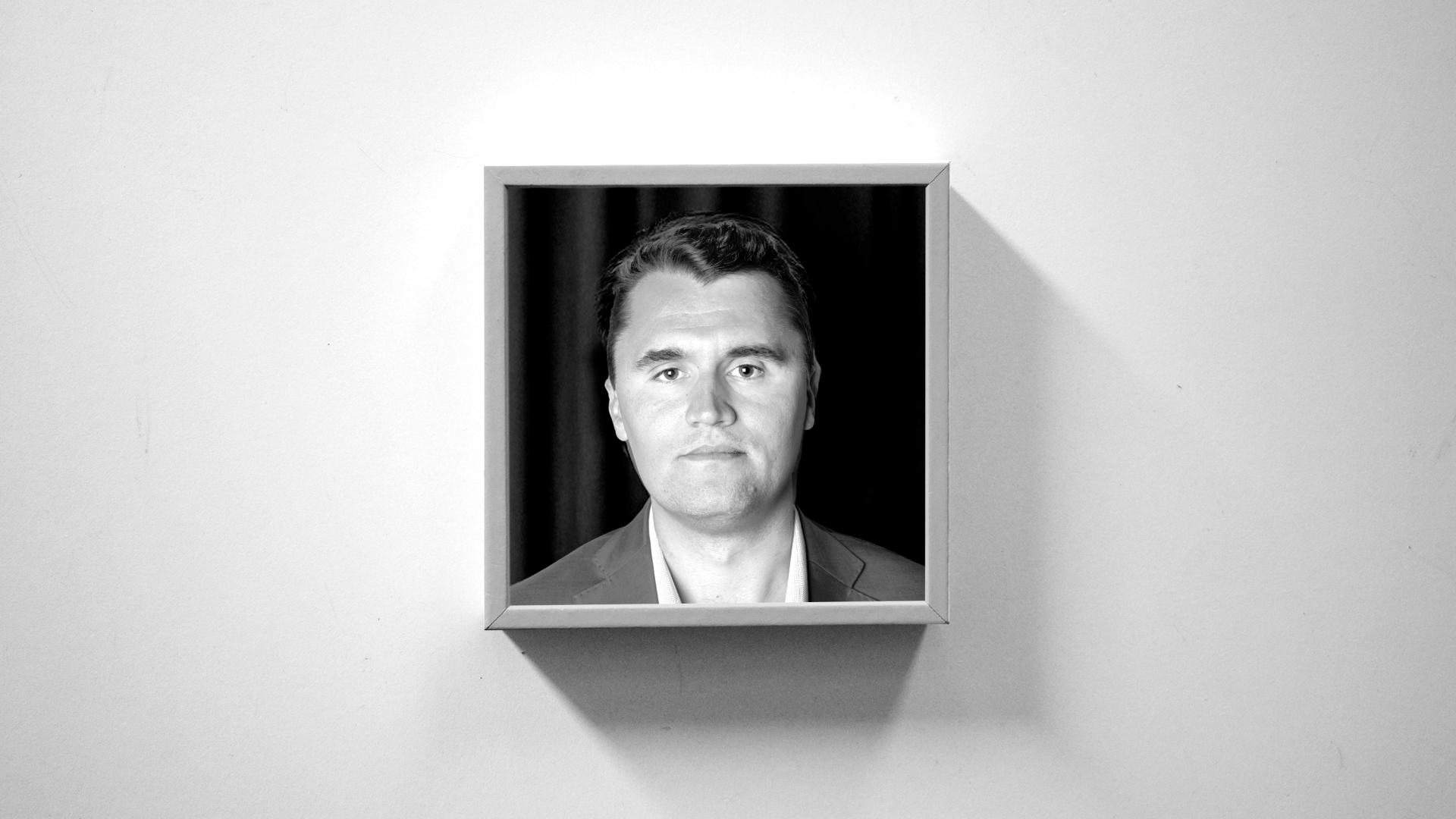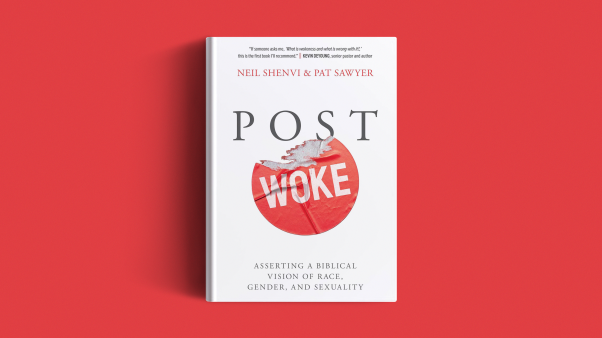Conservative political activist Charlie Kirk died on Wednesday after he was shot at a public event at a college campus in Utah. He was 31.
Kirk built a massive political movement with viral video clips of sharp comebacks and quick counterarguments in all-comers debates. He described himself as a disruptor and argued disruption was the only way to make America great again. Adopting Donald Trump’s signature political slogan, Kirk called it “the MAGA doctrine, which is a doctrine of American renewal, revival … that America is the greatest country in the history of the world.”
Promising to “play offense against the secular left,” he launched hundreds of chapters of his youth organization, Turning Point USA, and taught a generation of grassroots activists to court controversy. The groups invited him to their schools, where he would engage crowds with entertaining, argumentative melees.
Clips of his “dunks” and “owns” reached, by some counts, billions of people. Kirk became, in the process, a leading proponent of the confrontational style of political engagement that he and others believed was necessary to bring about a conservative reclamation of American culture.
“Directly confronting the left, and promising to fight their illiberal ideology with state power when necessary, is the key to winning everyday Americans,” he said in 2021.
Kirk became a trusted adviser in the Trump administration. Many, including Trump himself, credited him with rallying youth support for Trump’s reelection in 2024.
The president broke the news of Kirk’s death on social media.
“The Great, and even Legendary, Charlie Kirk, is dead,” Trump wrote. “No one understood or had the Heart of the Youth in the United States of America better than Charlie. He was loved and admired by ALL, especially me, and now, he is no longer with us.”
The governor of Utah called Kirk’s death a political assassination. Some Christian leaders, including the former pastor of the Chicago-area megachurch that Kirk attended in high school, said the political activist should be seen as a martyr.
“So grieved /shocked for the world to lose our dear friend Charlie Kirk,” James MacDonald wrote on X. “He is a martyr, of the cause to take America back from the evil one. … Charlie exhausted himself for righteous causes and was unashamed of his saving faith in Jesus Christ.”
The senior pastor of the Phoenix-area megachurch that Kirk regularly attended as an adult added that Kirk was killed because of his biblical views of truth.
“What the enemy has tried to do today is silence the people of God, silence the men and women of God,” Luke Barnett explained in his Wednesday-night sermon. “Well, you just unleashed the dragon.”
Charles James Kirk was born on October 14, 1993. His mother, Kimberly, was a mental health counselor, and his father, Robert, was an architect.
Kirk grew up in the suburbs north of Chicago. He first got interested in politics listening to conservative commentator Rush Limbaugh on the radio. As a teenager, he tuned in to debates about President Barack Obama’s plan to reform health care and discussions about the Tea Party movement’s efforts to oppose elected Democrats more effectively than the Republican Party was doing.
“I was like, This guy is unbelievable!” Kirk told The New York Times. “I would never forget: on my lunch break, from like 12:17 to 12:55, I’d listen. Just me. I went all in on Rush.”
In 2010, at 16, he volunteered for the Republican campaign to fill Barack Obama’s vacant Senate seat, knocking on doors and passing out fliers for a fiscally conservative, socially liberal candidate.
Kirk got his first taste of running his own political campaign the following year, when he rallied fellow students to protest the high school cafeteria’s hike of the price of cookies. He started a Facebook group and challenged Prospect Heights, Illinois, teenagers to “show the establishment the power of our generation.”
According to the Chicago Tribune, it was “more of a prank than serious political action,” but just because Kirk was having fun, that didn’t mean he wasn’t also serious.
“I never say anything I don’t mean,” he told the paper. “I wouldn’t say it if I didn’t mean it.”
In 2012, Kirk made a critical political connection that changed his life. He spoke at a Youth Government Day event at a Catholic University and used his time to argue against the Occupy Wall Street movement. He said the left-wing protesters were divisive and, besides, had terrible ideas. What America needed, according to Kirk, was fiscal responsibility and limited government.
Kirk captured the attention of the students in the room and retired restaurateur Bill Montgomery. They listened to him and seemed compelled to engage his arguments. Montgomery, who was 72 at the time, approached Kirk after and urged him not to go to college.
“You’ve gotta get involved in politics,” Montgomery said.
Kirk had hoped to go to the US Military Academy in West Point, New York, but hadn’t gotten in. He was looking at Baylor University, but activism seemed more exciting and important.
With Montgomery’s help and financial backing, Kirk launched Turning Point USA. The incorporation papers said, “Turning Point USA believes that every young person can be enlightened to true free market values.”
Kirk soon found he had a gift at connecting with donors. Older conservative men found him charismatic and compelling and were eager to give him financial support.
“He’s phenomenal,” evangelical businessman Peter Huizenga said. “At his age, he is one of the most accomplished, one of the most mature, and one of the most organized and intelligent guys that I have ever met. You just don’t meet guys like this.”
At the Republican National Convention in 2012, Kirk bumped into conservative evangelical megadonor Foster Friess. He’d never met him before but decided to pitch Friess on his vision for Turning Point. A few days later, a check from Friess for $10,000 arrived in the mailbox of his parents’ home.
Kirk also proved remarkably adept at connecting with college students. Turning Point added dozens of chapters every year and soon rivaled or even surpassed older, more established conservative groups on many college campuses, including the Young Republicans, Young Americans for Freedom, and Young Americans for Liberty.
Young people were not always interested in the economic arguments Turning Point was launched to advocate, but Kirk was quick to find issues that would pull students into the movement.
He frequently set up “Tell Me I’m Wrong” tables at campus events, inviting students to debate him. He homed in on the hottest topics. He found debates over free speech and censorship were particularly effective. Conservative students regularly clashed with left-leaning instructors and often felt their professors were trying to indoctrinate them. Turning Point launched a watch list, stirring controversy that raised the group’s profile.
Kirk connected with the Trump campaign in 2016, working closely with Donald Trump Jr. and acting as a youth director. Kirk continued to offer advice after the election, frequently going to meetings at the White House. He became a regular fixture of the right-wing media ecosystem and had a high profile on social media, where he often stoked controversy.
Kirk’s political activism became more overtly religious in 2019. He and Liberty University’s president at the time, Jerry Falwell Jr., cofounded a think tank they called the Falkirk Center. Kirk said the center would “explain the link between the gospel of Jesus Christ and American founding freedom” and help mobilize conservative evangelicals in the upcoming election.
He became more convinced during the COVID-19 pandemic that political battles and spiritual battles were deeply intertwined. In lockdown he read The Founders’ Key by Hillsdale College president Larry P. Arnn, Dominion by British historian Tom Holland, and The Age of Entitlement by conservative author Christopher Caldwell. The three titles taught him that all the political clashes and cultural conflict were really one big fight between opposed worldviews.
“I saw the wokies appealing to a moral order that they said was true and good,” he told The New York Times. “And I said, Well, we think ours is.”
When churches temporarily shut down to stop the spread of the coronavirus, Kirk became alarmed that Christians would surrender to government mandates without protest. This, he thought, could easily be the first step toward authoritarianism—and he wanted Christians to fight.
“While we’ve been doing budgets and baptisms and bigger buildings,” he said, “the secular humanists, they’ve been taking terrain. … This is the time for us to rise and stand. And the Bible says very clearly to ‘occupy till I come’” (Luke 19:13, KJV).
Rob McCoy, a Calvary Chapel pastor who clashed with California governor Gavin Newsom over pandemic mandates, mentored Kirk, who began to call McCoy his pastor. The two of them started Turning Point Faith together in 2021, holding events in church, working to organize pastors and mobilize conservative Christians.
“I realized that there is a desire for revival in this country, that there is a yearning for a different type of Christianity,” Kirk said. “It is about preaching a hot gospel and bringing a nation to repentance, which will then lead to revival.”
Kirk described the 2020 election as a spiritual battle and in one speech declared that the Democrats “stand for everything God hates,” before leading the crowd in a chant of “Christ is King! Christ is King!”
Kirk mobilized church and college groups for Trump in 2024, spending a year and a half focused on the election. When Trump won a surprising number of young voters, Kirk took credit.
“We registered tens of thousands of new voters and delivered the youth vote in record numbers,” he said. “The youth vote won Trump the White House.”
Despite his success, Kirk showed no desire to rest on his laurels or even slow down. His appearance at Utah Valley University was meant to be the first stop in a new campus tour, dubbed the “American Comeback Tour.”
The fatal bullet struck Kirk as he and a student were debating.
Kirk is survived by his wife, Erika Frantzve Kirk, and their two children, ages 1 and 3.









